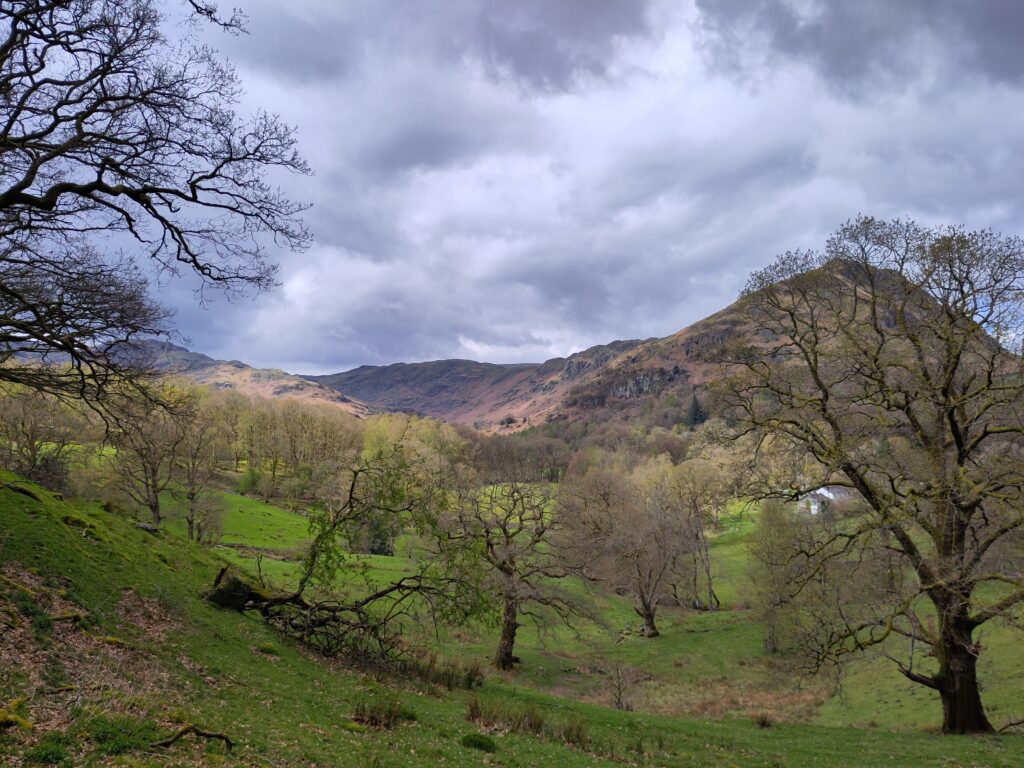During the Coronavirus lockdown, I was struck by the way in which familiar biblical phrases gained new resonances. The lament psalms, in particular, seemed freshly relevant.

The psalms were written well over 2000 year ago, and some of their imagery may seem strange, disturbing or even inappropriate; and yet they are so recognisably human. I often consult the translation by the Jewish literary scholar Robert Alter. Translating poetry is always a challenge – there are difficult choices to be made, with no right answers. Alter’s aim is to reproduce the concreteness of the biblical Hebrew. So he prefers everyday terms like ‘wrongdoing’ or ‘crime’ to more abstract and sophisticated words, like ‘iniquity’ or ‘transgression’. He also avoids later theological vocabulary, such as ‘soul’ or ‘salvation’. I use Alter’s translations to ‘defamiliarise’ myself, and look at this ancient religious poetry afresh.
The most prevalent pattern in Old Testament poetry is what scholars term ‘parallelism’ – the way in which one line is followed by another which echoes and intensifies it. In March 2020, just before lockdown, I led a session on the Psalms for people involved in pastoral care. I asked participants to write a short sentence about what was on their minds, and then a second which heightened the thought. This simple exercise produced some moving two lines verses, illustrating just how powerful a device ‘parallelism’ can be:
Our flights may be cancelled,
when shall we see our children?
We must not touch each other,
how do we give comfort?
Your people are afraid O Lord,
where will they find re-assurance?
The imagery in the psalms is not, by and large, particularly inventive. There is lots of stereotyped repetition – danger, for example, is often represented by ‘the depths of the sea, swirling waves, waters that come up to the neck’ (Alter). And the imagery is very general – it’s often difficult to ascertain exactly what situation the psalmist is talking about – who, for example, the enemies might be. But that generality is precisely their strength – it’s what enables us to see ourselves in their expressions of lament or praise. People experienced the pandemic lockdown, for example, in such different ways: some struggling with loneliness, others with the constant demands of young children. Some existed in comfortable bubbles, while others were at the sharp end, shocked and exhausted. Some were anxious about money, others struck down by grief.
The psalms, with their ‘raw searing honesty’ (Shai Held), give permission to be direct and emotional in prayer, to bring the depth of our experiences to God. Nothing is off-limits. And we can do so together, despite our different situations, because different phrases will resonate with different people for different reasons. And nobody need know what it is that jumps out at each of us, or why. So we can pray communally, while being personal but private.
Psalm 13 is an archetypal lament psalm (see Alter’s translation below). It begins by repeating ‘How long?’ four times. Nothing clever or complicated – but it’s a question many of us ask at one time or another. The first line reads ‘How long, O LORD, will you forget me always?’. As Robert Alter says, ‘The apparent logical contradiction between “how long” and “always” actually makes psychological sense: From the speaker’s tormented perspective, it feels as though God is forgetting him forever’. And in verse 3 (and again in verse 5) we have reference to an ‘enemy’. Is this a human military enemy, a treacherous friend, an internal demon – such as overpowering anxiety, or indeed, a virus? The ambiguity enables us to reflect on whatever it is that is ‘looming’ over us, now. Having given voice to suffering, the psalmist petitions God for help. We have a contrast between light for the eyes and the implied darkness of death. And Alter reproduces an awkward jolt in the Hebrew: ‘lest I sleep death’.
Then in verse 6 we have a sudden change of mood. Such abrupt transitions are typical of the psalms. Here we go from sorrow in the heart, and foes exulting, to the heart exulting. From desperate supplication to celebration. Note that in other psalms the mood might go the other way, or flip backwards and forwards. Again, I think that such mood swings do indeed reflect human experience. One minute we feel strong and determined, the next we want to give up. But Psalm 13 does end with thanksgiving. And maybe the prayer itself has served as a vehicle of transformation. The expression of distress is itself an act of trust, which then enables the psalmist to assert confidence in the lovingkindness of God.
Robert Alter’s Translation of Psalm 13
To the lead player, a David psalm.
1. How long, O LORD, will you forget me always?
How long hide Your face from me?
2. How long shall I cast about for counsel,
sorrow in my heart all day?
How long will my enemy loom over me?
3. Regard, answer me, LORD, my God.
Light up my eyes, lest I sleep death,
4. lest my enemy say, ‘I’ve prevailed over him,’
lest my foes exult when I stumble.
5. But I in Your kindness do trust,
my heart exults in Your rescue.
6. Let me sing to the LORD,
for He requited me.
Resources referred to:
Alter, Robert, The Book of Psalms: A Translation with Commentary (New York: Norton, 2007).
Shai Held: Theology of Psalms: https://www.hadar.org/project-zug/theology-psalms-e
Ann Conway-Jones will be leading ‘Taking Inspiration from Biblical Poetry’ on Sunday 21st May, 14.00 – 17.00 UK time.



